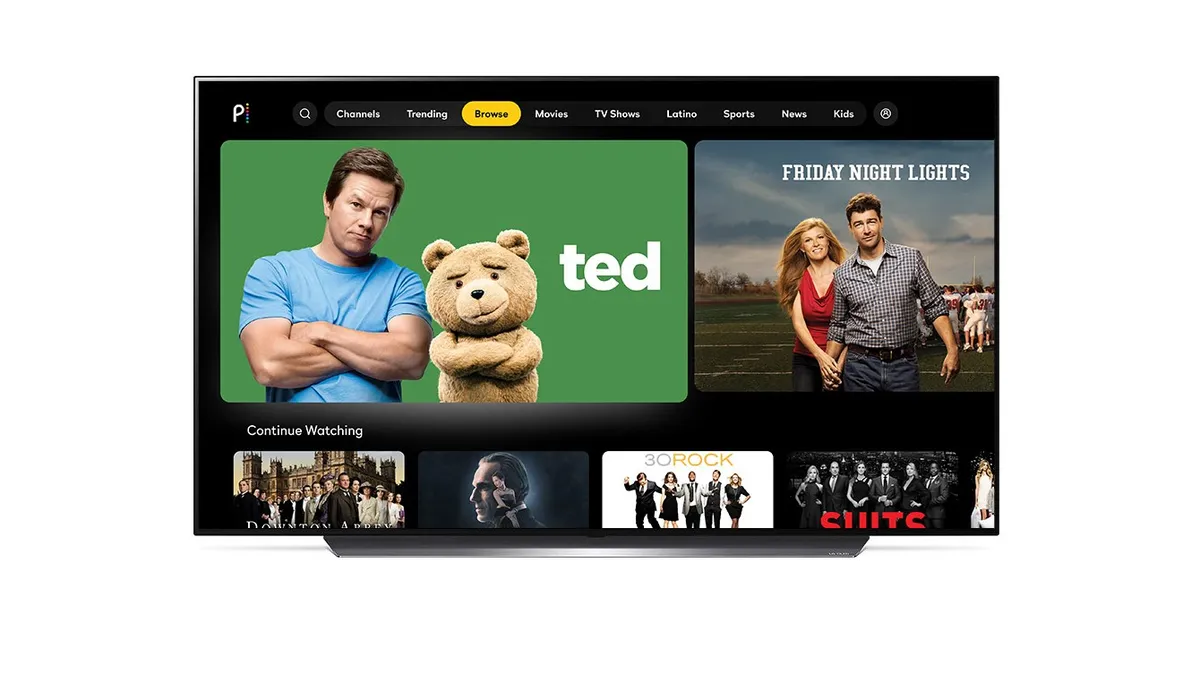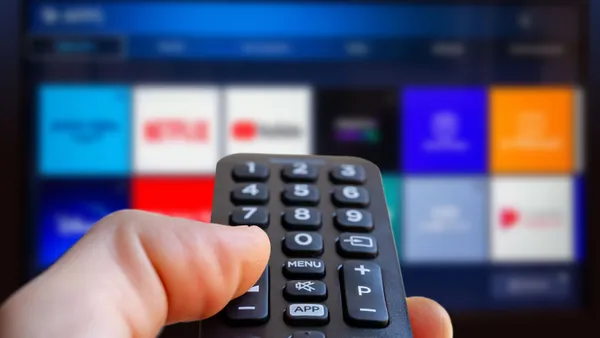Dive Brief:
- Unilever and Target this month began running a voice-powered commercial on Peacock, the ad-supported streaming service that NBCUniversal launched nationwide in July. Viewers who say the phrase "Save with Suave" receive a $5 coupon for the Unilever brand of haircare products at Target, Variety reported.
- Coors Light also is using the voice-powered tech, which NBCUniversal describes as an "on command" ad, to interact with Peacock viewers. Sponsors such as Verizon, Subaru and State Farm also have signed exclusive deals with NBCUniversal for access to tests of interactive commercial formats, per Variety.
- NBCUniversal's agreements with its advertisers permit the media company to measure how ad formats like voice-powered ads perform as part of its effort to develop new business models for its ad-supported streaming service.
Dive Insight:
Unilever and Target's coupon offer in Peacock's voice-powered ad format is an early sign of how consumer packaged goods companies and retailers are testing promising new technologies that make TV more interactive for viewers and marketers alike. By letting viewers respond with a verbal command to receive a coupon, the companies can make the process of directly responding to a call to action easier for consumers while possibly lifting response rates. Instead of asking viewers to call a toll-free number or visit a website, voice-activated ads can trigger an immediate response and help advertisers measure the effectiveness of their direct response campaigns.
Voice-activated ads are likely to become more common as a growing number of consumers equip their households with the technology to support those interactions, including the integration of virtual assistants like Amazon Alexa, Apple's Siri and Google Assistant. NBCUniversal's parent company Comcast has offered voice-activated remotes for its X1 and Flex video services for years, giving viewers hands-free control of their TVs. Voice-powered ads can help to popularize voice commerce, which is seeing renewed interest among businesses seeking to reach homebound consumers during the coronavirus pandemic, Pymnts.com reported.
Peacock is among the streaming services becoming more popular as households cancel cable and satellite TV subscriptions and hook up their TVs directly to the internet. Advertising-based video on demand (AVOD) services including Roku, Hulu, Peacock, Pluto TV and Tubi boosted their ad revenue 31% to $849 million in Q2 from a year earlier as more marketers piled into the growing platforms, according to MoffettNathanson Research data cited by eMarketer. Peacock generated $80 million in revenue with significant upfront commitments from advertisers during its limited rollout that preceded last month's launch, per the estimate.
Unlike subscription video on demand (SVOD) services such as Netflix and Disney+, AVOD services don't charge a monthly fee and may appeal to consumers seeking fresh programming but have a limited budget for subscriptions. More than half of U.S. consumers (59%) aren't willing to pay more than $20 a month for streaming TV services, a survey by The Trade Desk found last year. While some people have a limited streaming budget, many are willing to watch ads in exchange for free content, especially if the ads are more personalized. About two-thirds (68%) of U.S. consumers said they would be willing to watch ads relevant to their interests if it meant watching fewer ads overall.
AVOD services like Peacock must be mindful about their ad loads to avoid alienating streaming viewers, but improved ad targeting can help to reduce that possibility and spur greater adoption of newer formats like voice-powered commercials.














